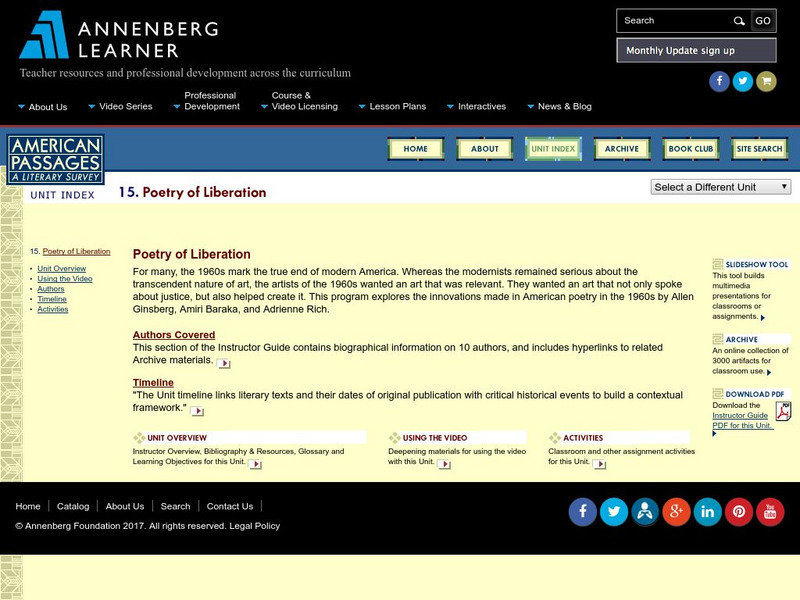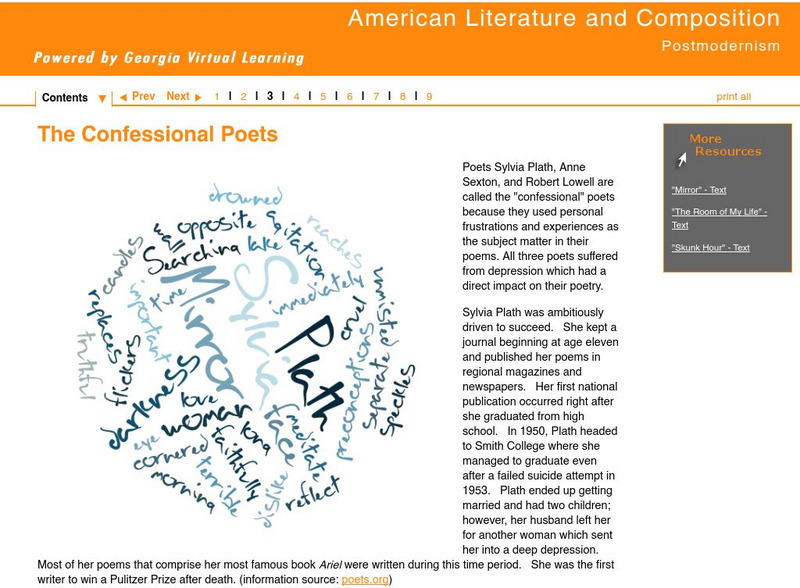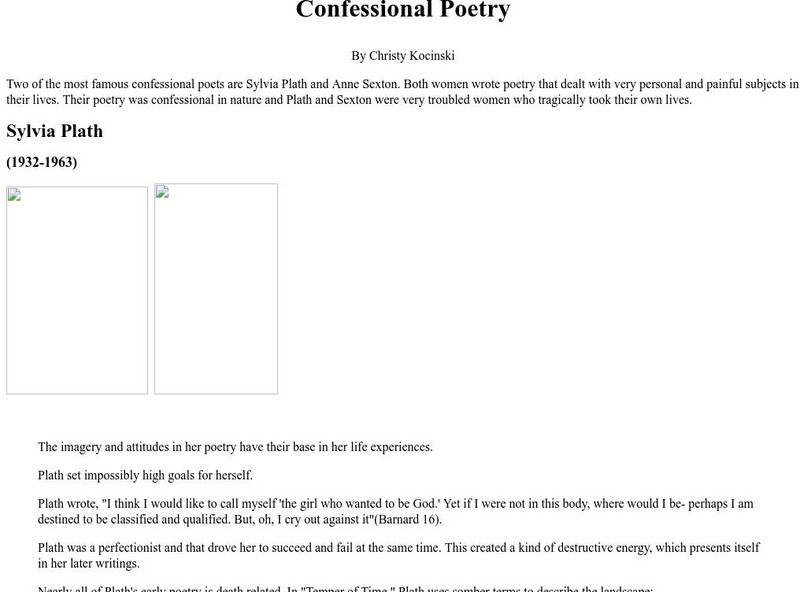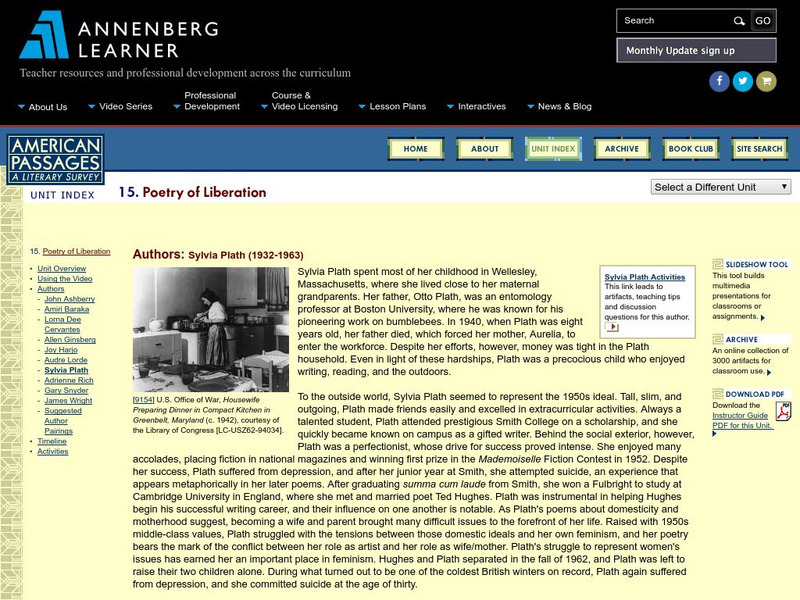Annenberg Foundation
Annenberg Learner: American Passages: Poetry of Liberation
This unit examines poetry of the postmodernism period, focusing on the Beat Movement, Black Arts Movement, feminism, and other related movements and periods in recent literary history. An extensive list of authors, time line, video, and...
Georgia Department of Education
Ga Virtual Learning: American Literature: Postmodernism: The Confessional Poets
This lesson focuses on the Confessional Poets: Sylvia Plath, Anne Sexton, and Robert Lowell, who all suffered from depression which is reflected in their poems. It gives short bios of each poet and provides a link to one poem from each:...
Cengage Learning
Houghton Mifflin: Anne Sexton Classroom Strategies
An outline for teachers about how to approach Anne Sexton and her work in the classroom. Includes questions for discussion, a bibliography, information about themes and form, and links to other poets who are connected to Sexton's work.
Georgia Humanities Council and the University of Georgia Press.
New Georgia Encyclopedia: James Dickey
A fairly meaty biography of the writer, James Dickey, as well as a discussion of his work. The article also includes a suggested reading list.
Other
Winona State University: Confessional Poetry
An explanation confessional poetry and examples of the writings of the confessional poets; Sylvia Plath, Anne Sexton, Sharon Olds, and Robert Lowell.
Annenberg Foundation
Annenberg Learner: American Passages: Poetry of Liberation: Sylvia Plath
Sylvia Plath is featured in this brief biography for her writings which focused on her views of feminism. See "Sylvia Plath Activities" for related materials.
Academy of American Poets
Poets.org: A Brief Guide to Confessional Poetry
Concise explanation of the term "confessional poetry." It's mainly a discussion of the poetic movement of the 1950s and 60s, and it also includes example passages by Sylvia Plath and John Berryman.








